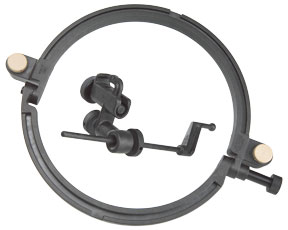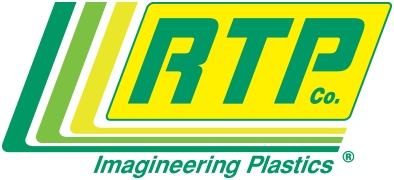Search Case Studies
End-Use Case Study
- PEEK™ Compound Replaces Titanium

However, the use of MRI and CT leads to compatibility issues associated with the materials used during surgery. For example, MR brain scans can be distorted because surgical head restraint assemblies are manufactured from magnetic materials. CT images become unrecognizable where magnetic components are employed. Titanium, although non-magnetic, can produce undesirable heat and be cost prohibitive to manufacture.
Performance Plastics (PPL), a high performance injection molding specialist, took on the challenge to convert the head restraint assembly to plastic. Working with RTP Company, PPL evaluated and developed a solution to meet the complex requirements of the device.
Size limitations of the device and the high loads applied to it during surgery required a high strength-to-weight ratio. In addition to meeting the mechanical criteria, sterilization necessitated a chemically resistant compound that could withstand high temperatures.
“A big hurdle with this application was that we needed a compound that was more highly modified than the standard Victrex® PEEK™ grades because the head restraint system is composed of large parts with long flow lengths,” said Ken Kelly, Engineering Manager at PPL. “We asked the engineers at RTP Company to assist in optimizing the carbon loadings because of their superior additive technologies.”
RTP Company customized an RTP 2200 polyetheretherketone (PEEK) high flow carbon fiber reinforced compound. The material exhibits a tensile strength of 40,000 psi (276 MPa) and flexural modulus of 5.4 psi x 106 (37,233 MPa), meeting the stiffness and creep resistance requirements critical for titanium replacement while optimizing the fiber loadings for improved flow. This compound handles the extreme temperatures and harsh conditions of gamma radiation and autoclave sterilization, along with other solutions found in medical environments.
“We know materials, but RTP Company is a great sounding board and a peer at the very highest level,” said Kelly. “They help us arrive at the best solution.”
Performance Plastics (PPL) was formed in 1982 with the charter to develop innovative injection molding solutions, focusing on high performance materials used in hostile environments. Today, PPL specializes in metal-to-plastic conversions through the utilization of the latest technologies and materials. For more information, go to www.performanceplastics.com.




